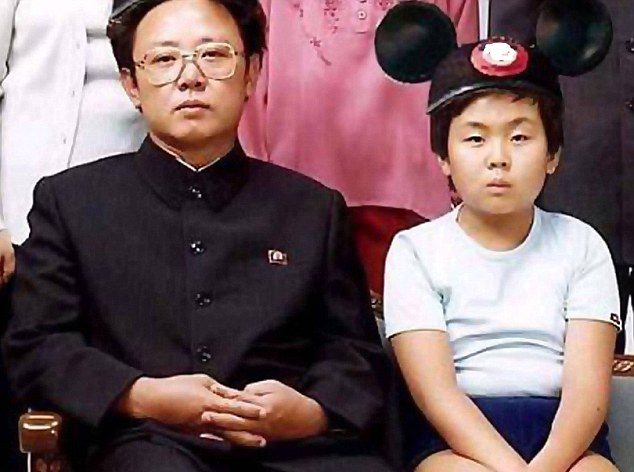Just a whisper bigger in land mass than Pennsylvania, North Korea is a Digital Age Orwellian state that knows only one Big Brother and his name is Kim Jong-un. He does not tolerate sibling rivalry.
In reviewing a raft of titles in the New York Review of Books about the nation ruled by Dear Respected Comrade, political scientist Andrew J. Nathan questions if President Obama’s “strategic patience” will pay off with ungodly wealth inequality and economic sanctions provoking a surrender of nukes or the fall of the tyrannical government. It’s far from assured, with China betting against, not seeing a chance for reforms similar to its own taking root in its neighbor. Nathan agrees with that latter assessment, writing that “North Korea is more like East Germany than it is like China.”
An excerpt:
As the end of his own life approached, Kim Jong-il in turn needed to find a successor among his three male offspring. (He also had four daughters, who today occupy posts of varying responsibility in the regime.) Observers had originally expected the succession to fall upon the eldest, Kim Jong-nam (born in 1971). Jong-nam, however, was the offspring of Jong-il’s first long-term consort (it is not clear whether Jong-il ever formally married any of his companions), whom the patriarch Kim Il-sung disliked. Moreover, in 2001, Jong-nam was caught by Japanese immigration officials entering the country on a forged Dominican passport, accompanied by a wife, child, and nanny. The forged passport was nothing unusual for North Korean elites, but apparently Jong-nam’s reason for using it—to bring his family to visit Tokyo Disneyland—confirmed in his father’s eyes that he lacked the necessary toughness to wield power. Jong-nam was sent into exile, and reportedly spends much of his time in the Chinese gambling city of Macau. He has given several press interviews expressing his disapproval of “hereditary succession.” Chinese guards, I have been told, protect him from potential North Korean assassins. It is not clear who supports him.
Kim Jong-il’s second son, Kim Jong-chul, was also found inadequate, according to a gossipy book by the family’s Japanese former sushi chef, because he was too “effeminate.” That left Jong-un, born in 1984, although his official birthday has been adjusted to 1982 to continue the mystical parallelism with his grandfather’s and father’s birth years. Jong-un was not academically talented, and during his secondary education at a private school in Switzerland he is said to have been obsessed with basketball and other sports. But he was short-tempered and domineering, characteristics suitable for inheriting a dictatorship. In 2009, word appeared that a “new genius of leadership had emerged from within the ancient lands of Korea.” Jong-un’s appearance was groomed to resemble his grandfather’s—including his bouffant haircut. Observers speculate that he was encouraged to gain weight for this purpose; according to intelligence reports he may now be suffering from health problems related to obesity.
The most serious threat to Jong-un’s authority was his uncle. The husband of Kim Jong-il’s only sister, Jang Song-taek had accumulated broad influence, serving among other things as vice-chairman of the National Defense Commission, the controller of Pyongyang’s foreign exchange resources, and the regime’s chief contact with China.5Many viewed him as a regent, and he held a potential threat over Jong-un’s head in the form of a close relationship with the exiled older half-brother Jong-nam, who could potentially have replaced the younger sibling at the head of the party and state.
On December 8, 2013, two years after Jong-un came to power, the young ruler arranged for Jang to be seized by uniformed guards in front of hundreds of high-ranking officials who had been summoned to an enlarged meeting of the ruling party’s Political Bureau. Jang was accused of “anti-party, counter-revolutionary factional acts,” of conducting numerous extramarital affairs, and of other crimes. He was denounced as “an ugly human scum worse than a dog” and executed by firing squad (not, as was rumored at the time, by antiaircraft guns or ravenous dogs). Many of his followers were killed or sent to labor camps, some reports say along with their spouses, children, and grandchildren. Jang’s wife may or may not have approved of her adulterous husband’s execution; she is said to be suffering from dementia and has appeared silently in public a handful of times since the purge.•

